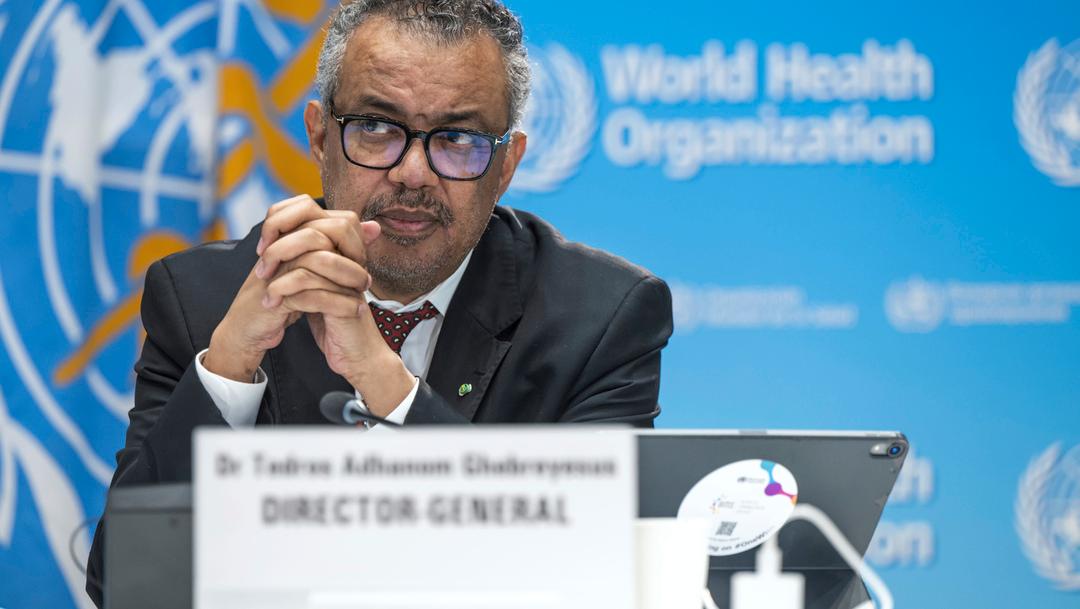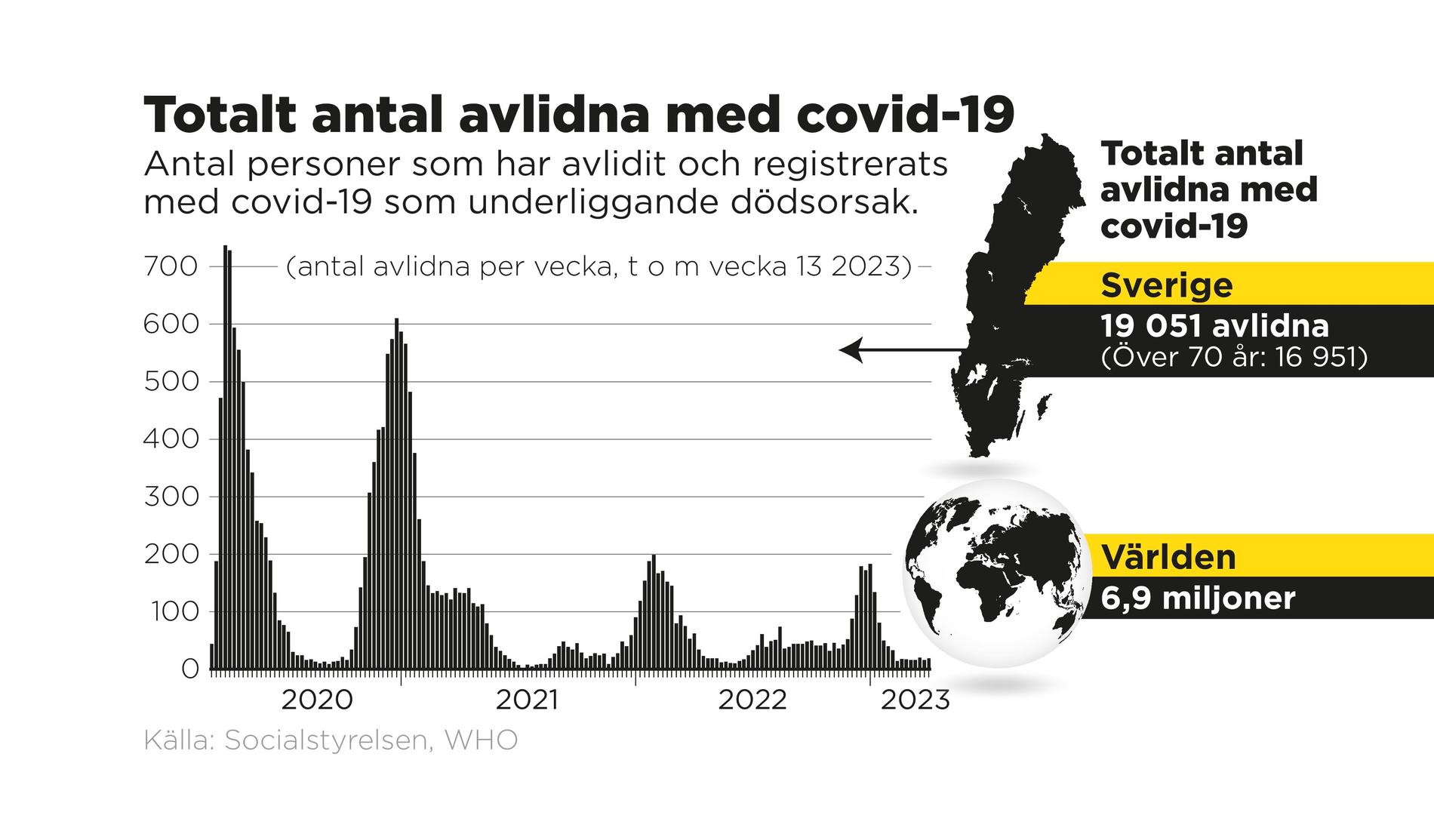The corona pandemic
WHO: Corona pandemic no longer a global health crisis
Of:
Lukas Jacobson
Published: Today 15.22
Updated: Less than 20 min ago
NEWS
The number of deaths linked to corona has decreased sharply since the turn of the year.
Now the WHO announces that covid-19 is no longer a global health crisis.
- The acute phase of the pandemic is over, says Niklas Arnberg, professor of virology.
The World Health Organization WHO announced on Friday that covid-19 no longer constitutes a global emergency, TT reports.
Recently, the WHO also announced that the number of deaths from covid-19 has decreased by 95 percent since the turn of the year, writes AFP.
However, the WHO director pointed out that the virus is still spreading and claiming lives.
- However, this does not mean that covid-19 no longer poses a global health threat. Last week, covid-19 claimed a life every three minutes, and those are the only deaths we know about. As we speak, thousands of people around the world are fighting for their lives in intensive care units, says WHO Secretary-General Tedros Adhanom Ghebreyesus.
- I have just spoken to representatives of the WHO and it is clear that even if the so-called state of emergency is over, the pandemic is not over. Put simply, the new announcement means that the acute phase of the pandemic is over, says Niklas Arnberg.

WHO Director Tedros Adhanom Ghebreyesus. Photo: Martial Trezzini/AP/TT 

The Virus Professor's
Delight
Niklas Arnberg is professor of virology at Umeå University and he is excited about the news.
- This is fantastically good news, he says to Aftonbladet.
On January 30, 2020, the WHO stated that corona constituted an international health crisis before announcing in March of the same year that it was a pandemic.
- When the WHO declares an international public health emergency, it is a signal to countries, authorities and healthcare that you must gather strength and coordinate resources to handle the situation that has arisen. That you have to prepare for a new and difficult situation that entails big problems and the consequences that follow.
- It is the WHO that declares a pandemic, and they declare when a pandemic is over. Formally speaking, the WHO has not said that the pandemic is over yet, says Niklas Arnberg.

Niklas Arnberg, professor of virology at Umeå University Photo: Mattias Pettersson/ Umeå University
Emphasize the research
But as far as Sweden is concerned, Arnberg believes that we have come a long way in the pandemic work.
- I find it difficult to see that we should have to return to pandemic laws and classify this disease as dangerous to society.
When the virus professor looks back over the time spent with pandemic laws, vaccinations, covid passports and restrictions, he especially highlights the importance of research.
- I am very happy because this is a great example of how important it is with research and knowledge, because this is an opportunity for research to make its value visible. What if research didn't give us PCR tests, didn't give us the vaccine, didn't give us the medicines. Then this pandemic could have gotten significantly worse, and lasted for a longer time.
Close to seven million deaths linked to covid-19 have been reported to the WHO - but the dark figure is believed to be large. The real death toll is estimated to be over 20 million.
Facts
International health emergency
In extraordinary events, the World Health Organization WHO can declare an international health emergency, formally called an "international threat to human health".
The declaration means that WHO assesses that there is a risk of international spread of an infectious agent or other dangerous substance and that there is a need for coordinated measures. It also means that the WHO may issue temporary recommendations.
The recommendations may consist of measures directed at affected countries and/or other countries with the aim of preventing or reducing the international spread with the least possible restrictions on international traffic.
The WHO Director-General decides whether an event should be declared an international health emergency. For his assistance, the director-general must consult a committee of experts.
The possibility to declare an international health emergency follows from the provisions of the International Health Regulations (IHR) which entered into force in 2007.
The following outbreaks have been declared an international health emergency:
Influenza pandemic A(H1N1): April 25, 2009 – August 10, 2010
Polio: May 5, 2014 – ongoing
Ebola: August 8, 2014 – March 29, 2016
Zika: February 1, 2016 – November 18, 2016
Ebola DRC: 17 July 2019 – 26 June 2020
Covid-19: 30 January 2020 – 5 May 2023
Monkey pox: 23 July 2022 - ongoing
Source:
Public Health Agency, National Encyclopedia
Number of people who have died with covid-19 as the underlying cause of death.

Number of people who have died with covid-19 as the underlying cause of death. Photo: GRAPHICS: Johan Hallnäs/TT

Inga kommentarer:
Skicka en kommentar